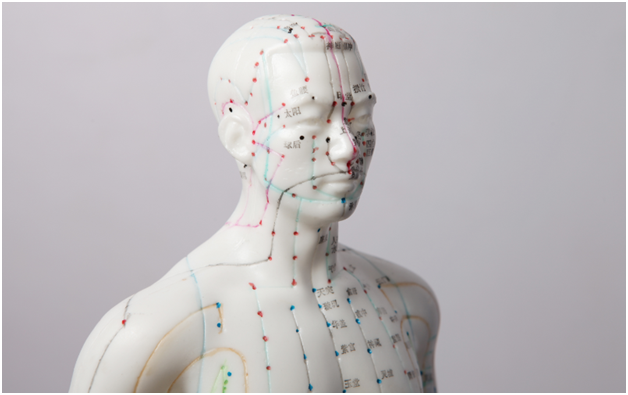Understanding Acupuncture Treatment Through the Lens of Traditional Chinese Medicine in Singapore

Acupuncture, a central practice in Traditional Chinese Medicine (TCM), has steadily gained traction in Singapore for its therapeutic applications. By focusing on restoring balance within the body’s energy flow, acupuncture aims to alleviate various health conditions. This ancient practice, however, is more than the insertion of fine needles; it’s rooted deeply in the principles of TCM, making it a holistic approach to wellness that continues to resonate today. Below, we explore the essentials of acupuncture treatment in Singapore through the perspectives of TCM to understand its benefits and applications better.
The Essence of Traditional Chinese Medicine in Singapore
Traditional Chinese Medicine (TCM) approaches wellness as a comprehensive system that seeks balance within the body. At its core, TCM views health as the harmonious interplay of body, mind, and spirit, striving to balance yin and yang energies. TCM has grown in popularity in Singapore and is often practised alongside Western medical treatments. Acupuncture, as part of TCM, clears blockages in the body’s energy pathways, known as meridians. Addressing underlying imbalances is a method of re-aligning the body’s natural energy, known as qi, promoting harmony and overall well-being.
How Acupuncture Works According to TCM
Acupuncture treatment in Singapore follows the principles of TCM, where the body’s energy channels or meridians are believed to connect to various organs. Health issues arise when these pathways are obstructed, causing energy stagnation. Inserting thin needles into specific acupoints along these channels is thought to release these blockages, re-establishing the energy flow and encouraging the body’s natural healing processes. Unlike typical medical approaches, acupuncture addresses the root cause of an ailment by stimulating these pathways, improving physical and mental health over time.
Modern-Day Applications of Acupuncture in Singapore
Acupuncture in Singapore is widely embraced for its therapeutic applications, from stress relief to pain management. For individuals seeking alternatives to pharmaceuticals, acupuncture is a popular option for addressing chronic pain, migraines, and insomnia. Additionally, this method is recognised for its efficacy in managing stress, anxiety, and other mental health conditions. By promoting relaxation and releasing built-up tension, acupuncture provides relief that complements Singapore’s high-paced urban environment, where stress is a leading health concern. As a result, it has become a holistic solution for many individuals seeking alternative healing practices within the city-state.
The Treatment Process of Acupuncture in Singapore
Acupuncture treatment in Singapore is typically a straightforward yet personalised process, beginning with an initial consultation. During this stage, the practitioner evaluates the individual’s symptoms, energy balance, and medical history to identify specific acupoints that need stimulation. After this, fine, sterilised needles are inserted into precise points on the body. While the sensation is generally mild, patients may experience slight tingling or warmth, indicating energy activation. Sessions last around 30 to 60 minutes, with the number of treatments varying depending on the individual’s health concerns. With regular treatments, many experience a gradual and sustained improvement in their symptoms, attributing this shift to the body’s re-aligned energy flow.
Acupuncture’s Place in Preventive Healthcare
One of the unique aspects of acupuncture in TCM is its preventive approach to healthcare. Instead of treating symptoms alone, acupuncture works to prevent the onset of illness by strengthening the immune system and improving energy circulation. TCM practitioners believe that a balanced flow of qi can stave off diseases by fostering a more robust physical and mental state. In Singapore, where preventive health measures are becoming more sought after, acupuncture offers a natural, non-invasive method to improve immunity and sustain health. This aspect of TCM makes acupuncture not just a treatment but a preventive healthcare choice for many seeking to maintain their wellness over the long term.
Acupuncture and Integrative Health Approaches
As health and wellness take centre stage in Singapore, acupuncture is increasingly incorporated into integrative health practices, complementing conventional medical treatments. Many healthcare providers now recognise acupuncture as a viable adjunct therapy, particularly in treating chronic pain or supporting recovery post-surgery. By integrating acupuncture with Western medicine, practitioners can offer a more comprehensive, balanced approach to patient care. This integration is a crucial reason why acupuncture treatment in Singapore is becoming an accessible option for a wide demographic, from individuals looking for pain management to those interested in alternative therapies to boost overall health.
Key Benefits and Safety of Acupuncture
For those considering acupuncture, understanding its benefits and safety profile is essential. Acupuncture is generally safe when performed by trained practitioners, with minimal side effects. The main benefits include pain relief, stress reduction, and immune system support, offering a holistic alternative for those looking to avoid pharmaceuticals. The safe, non-invasive nature of acupuncture makes it particularly appealing for individuals of various ages and health conditions. Furthermore, TCM practices in Singapore are regulated, ensuring practitioners meet strict health standards, which adds reassurance to individuals exploring this treatment option.
Seeking Professional Acupuncture Treatment in Singapore
When choosing acupuncture treatment, it’s essential to consult a qualified TCM practitioner, as they know how to tailor treatments effectively. The popularity of acupuncture has led to a rise in licensed practitioners throughout Singapore, making it easier to find quality care. Visiting a TCM-accredited clinic ensures that the treatment is safe and adheres to the authentic principles of Traditional Chinese Medicine. For individuals unfamiliar with acupuncture, speaking with a practitioner about potential outcomes and expectations is a beneficial first step towards experiencing its health benefits firsthand.
Acupuncture has a significant role in Singapore’s health landscape, offering a comprehensive approach to wellness. Whether for chronic pain, stress management, or preventive care, this ancient practice remains relevant as a modern-day treatment option.
For further information, contact Thomson Chinese Medicine today.




